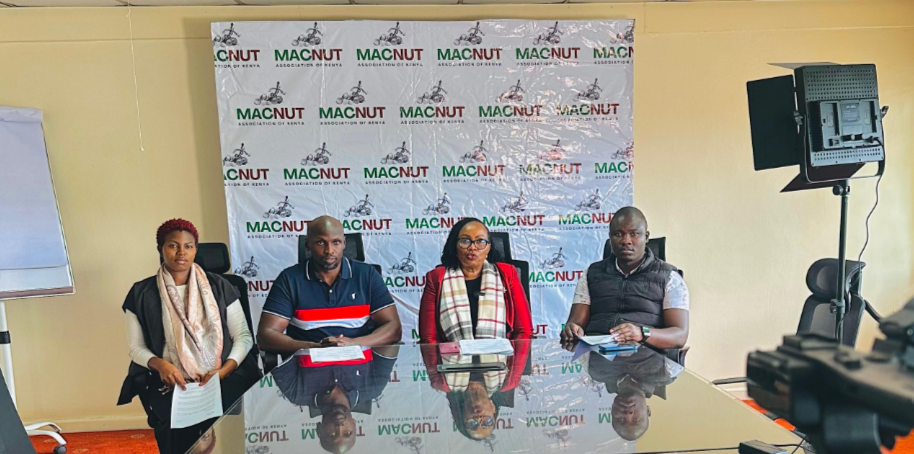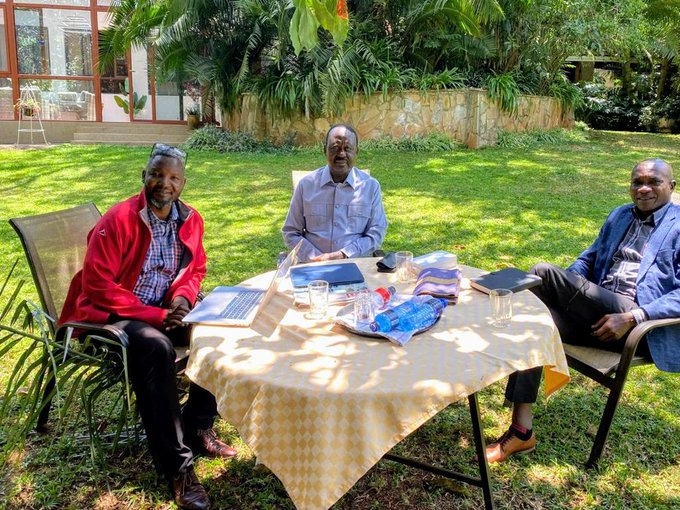

The Macadamia Association of Kenya (MACNUT) has moved to
defend this year’s macadamia prices, dismissing reports that farmers have been
shortchanged during the 2025 season.
The association says the year has, in fact, been one of the
best in recent memory, with prices rebounding strongly after a period of
instability in the sector.
In a statement released in Nairobi on Tuesday, the
association described the season as a turning point for macadamia growers
across the country.
According to MACNUT chairperson Jane Maigua, farmers who
adhered to government trading guidelines sold their produce at fair prices,
earning between Sh130 and Sh150 per kilogram during the peak season — a rate
the association says is the highest in over three years.
She added that the few farmers who received less than Sh100
per kilogram did so largely because they bypassed regulated markets or sold
early to brokers.
Only a few years ago, brokers were buying macadamia nuts for
as little as Sh20 per kilogram, a situation that left farmers struggling to
recover their costs.
But after the government introduced sweeping reforms to
control farm-gate pricing and curb exploitation, the trend began to change.
Maigua credited the improvement to the Ministry of
Agriculture and Livestock Development, which enforced a floor price to protect
growers from middlemen and ensured that global market gains reached farmers
directly.
The government’s decision to ban the export of raw in-shell
nuts has also been instrumental in stabilizing the industry.
MACNUT said the move encouraged local processors to absorb
nearly all the available nuts, boosting domestic processing and safeguarding
thousands of jobs.
The association believes that keeping more of the processing
work within Kenya has added significant value to the crop while strengthening
the country’s position in the global macadamia market.
Kenya currently ranks as the world’s fourth-largest producer
of macadamia nuts, with major buyers in the United States, Europe, and China.
Its nuts are prized for their creamy, buttery flavor and
organic quality, having been cultivated with minimal chemical input.
The association estimates that the macadamia industry
contributes more than Sh15 billion annually in foreign exchange earnings and
provides employment in processing plants, logistics, and rural collection
centers. Maigua emphasized that the industry’s growth continues to inject life
into rural economies across key producing counties.
Beyond the economic benefits, the association highlighted a
growing environmental dimension to the macadamia story.
By-products that were once discarded, such as shells and
husks, are now being turned into biochar and bio-fertilizers, which help
restore soil fertility and promote sustainable farming.
MACNUT views this as evidence that value addition in the
sector extends well beyond export earnings — it also fosters green innovation
and supports climate-resilient agriculture.
Kenya’s macadamia industry is also on the verge of entering
new global markets.
The association revealed that Kenyan-branded macadamia
products will soon feature on shelves of major international retail chains,
including Walmart.
The development, it
said, marks a milestone in global market expansion for local processors.
The Ministry of Agriculture is already working with
exporters to accelerate the rollout, aiming to position Kenya as a premier
supplier of premium, value-added macadamia products worldwide.
Despite the strong showing, the year has not been without
its challenges. MACNUT acknowledged that the second season has faced pest
infestations that threaten nut quality and yields.
The association called on the government, county
agricultural departments, and private partners to help farmers manage the
problem through biological and non-chemical methods.
Maigua said proactive pest control would be essential to
protecting the gains achieved so far and maintaining Kenya’s reputation for
high-quality produce.
Even with these hurdles, the outlook for the sector remains
positive. MACNUT reaffirmed its commitment to building a transparent and
profitable value chain that rewards farmers fairly while ensuring the
sustainability of the industry.
The association said continued collaboration among the
government, private sector, and growers will be crucial in maintaining the
momentum that has lifted the macadamia trade out of uncertainty and back into
profitability.
According to Maigua, the government’s steadfast partnership
has restored confidence and prosperity to an industry that once teetered on
collapse.
“The government’s visionary guidance has brought stability
to a vital export sector,” she said, expressing optimism that Kenya’s macadamia
industry is now firmly on a path toward global leadership in quality,
sustainability, and farmer empowerment.













